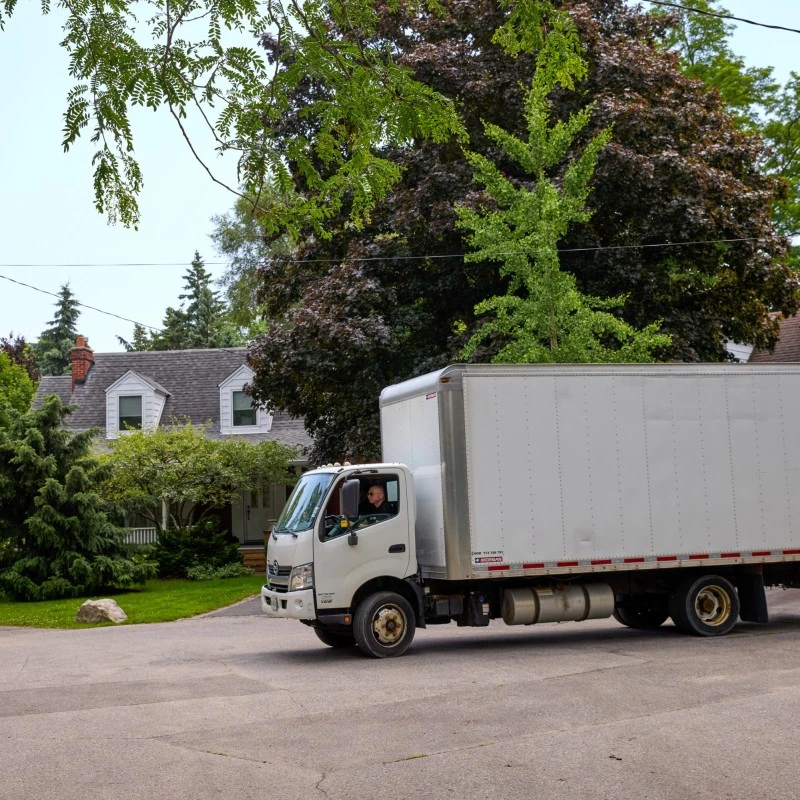Understanding Canada’s Pension System: A Guide for Expats


Canadians are so friendly that the majority of citizens welcome immigrants and expats with open arms. A significant percentage of Canada’s 7.9 million seniors are retired expats.
Expatriates are drawn to spending their golden years in beautiful Canada to enjoy a high quality of life, a strong healthcare system and inclusive multicultural communities. Additionally, Canada is known for being generally safe and its public services are broad and reliable.
For expats, knowing how the Old Age Security (OAS), Canada Pension Plan (CPP), and additional savings options like RRSPs and TFSAs work can inform financial planning and decision-making in order to maximize benefits.
After reading this article, you will have a well-rounded understanding of:
-
The Canadian pension system
-
Pension eligibility
-
Financial planning and tax considerations
-
Steps to take to secure your financial future
Components of Canada’s Pension System
For the most part, Canada takes good care of its seniors. There are several programs in place so that seniors in Canada can maintain a high quality of life with minimal finance-related stressors and concerns. The programs include:
-
Old Age Security Pension
-
Allowance and Allowance for the Survivor
-
Canadian Pension Plan including Disability Pension, Survivor’s Pension, and Children’s Benefits
-
Guaranteed Income Supplement
Old Age Security (OAS)
The Old Age Security (OAS) pension is a program that provides a monthly payment to seniors. The eligibility requirements for Canada's Old Age Security (OAS) pension are as follows:
-
You must be 65 years old or older
-
You must be a Canadian citizen or a legal resident of Canada at the time of application
-
You must have lived in Canada for at least 10 years since the age of 18 to receive OAS benefits while residing in Canada.
-
To receive OAS benefits outside of Canada, you must have lived in Canada for at least 20 years since the age of 18.
If you do not meet the above residence requirements, you might still qualify for OAS under a social security agreement between Canada and your country of origin. This is a major bonus for qualifying expats!
Allowance and Allowance for the Survivor
The Allowance is an additional program that is available to low-income spouses or common-law partners of OAS recipients aged 60 to 64. The maximum monthly payment for the Allowance (as of 2025) is up to CA$1,487.50.
Grieving a loved one is hard enough as it is, and money stress should not be part of the grieving process. The Allowance for the Survivor is available to low-income widowed spouses or common-law partners aged 60 to 64. The maximum monthly payment for the Allowance for the Survivor (as of 2025) is up to CA$1,785.00.
Payment amounts for both the OAS and the Allowance are reviewed quarterly and adjusted based on inflation and changes in the CPI.
Canada Pension Plan (CPP)
Canada has set up a plan where citizens can actively work to create a secure retirement while they are still in their working years. CPP benefits aim to provide financial support to contributors and their families during retirement, disability, or following the death of a contributor.
Eligibility requirements for the CPP are as follows:
-
You must have made contributions to the CPP during your working years
-
You must be at least 60 years old to start receiving CPP retirement benefits. However, you can choose to begin receiving benefits as early as age 60 or as late as age 70.
-
You must have made valid CPP contributions for at least one-third of the years in your contributory period, which is the period from the age of 18 to when you start receiving CPP benefits
-
You must have made valid CPP contributions for at least four of the last six years before you start receiving CPP benefits, or you must have made contributions for at least one-third of the years in your contributory period.
The more you contribute over the course of your adult life, the more comfortable your retirement will be. CPP benefit amounts are based on the contributor's earnings during their working life and the number of years of contributions. The maximum monthly CPP retirement pension amount (as of 2025) for those starting benefits at age 65 is approximately CA$1,256.00.
Regular Disability Pension
Differently-abled Canadians are able to enjoy a comfortable retirement despite physical or mental limitations. The CPP disability benefit is for those who have a severe and prolonged disability that prevents them from working at any job on a regular basis and have made valid CPP contributions in four of the last six years.
The amount of CPP disability benefits is based on the contributor's contributions and earnings before becoming disabled. The maximum monthly CPP disability benefit amount (as of 2025) for those deemed severely disabled is approximately CA$1,663.00.
Survivor’s Pension
Again, financial worries should never be a part of the grieving process. The survivor's pension is available to the surviving spouse or common-law partner of a deceased contributor who has made CPP contributions.
The amount of the survivor's pension depends on various factors, including the deceased contributor's contributions and earnings. The maximum monthly CPP survivor's pension amount (as of 2025) for those aged 65 and older is approximately CA$695.00.
CPP Children's Benefits
When you contribute to CPP, you are also looking out for the well-being of your children. CPP children's benefits are available to dependent children of deceased CPP contributors or recipients of disability benefits.
The amount of children's benefits is based on the deceased contributor's or disability recipient's contributions and earnings. The maximum monthly CPP children's benefit amount (as of 2025) is approximately CA$258.00 per child.
Guaranteed Income Supplement
The Guaranteed Income Supplement (GIS) is a non-taxable benefit provided by the Canadian government to low-income OAS pension recipients in Canada. To be eligible for GIS, individuals must meet the following requirements:
-
Applicants must be legal residents of Canada and currently residing in the country at the time of application.
-
Applicants must be receiving the OAS pension and be at least 65 years old. In some cases, individuals aged 60 to 64 who are receiving an Allowance or Allowance for the Survivor may also be eligible.
-
Eligibility for GIS is primarily determined by income. The government assesses the combined income of the applicant and their spouse or common-law partner, if applicable. This includes income from various sources such as employment, pensions, investments, and any other sources.
-
To qualify for GIS, the combined income of the applicant (and spouse/common-law partner) must fall below a certain threshold set by the government. The threshold varies depending on marital status and whether the applicant receives the full OAS pension or a partial pension.
-
Applicants must file their income tax returns annually to be considered for GIS benefits. This ensures that the government has updated information on the applicant's income and can accurately determine eligibility.
The Guaranteed Income Supplement (GIS) provides additional financial assistance to low-income Old Age Security (OAS) pension recipients in Canada. The payment amounts for GIS depend on various factors, including marital status, income level, and whether the recipient is receiving the full OAS pension or a partial OAS pension.
The maximum monthly GIS payment for single individuals who receive the full OAS pension is approximately CA$ 927.00 (as of 2025).
The maximum monthly GIS payment for couples where both individuals receive the full OAS pension is approximately CA$618.00 per person, totaling approximately CA$1,236.10 for the couple (as of 2025).
These are maximum payment amounts, and actual GIS payments may vary based on individual circumstances, including income level and other factors affecting eligibility. GIS payments are adjusted quarterly in line with changes in the cost of living.
Eligibility and Tax Considerations for Expats in Canada
No matter where you are living on the planet, Canada has got your back when it comes to retirement comfort. Canadians living abroad are eligible to receive government pensions in retirement. International social security agreements coordinate pension programs between countries, potentially aiding qualification for benefits.
Non-resident CPP/QPP and OAS payments are subject to a default withholding tax of 25%, which can be reduced through tax treaties. While withholding tax is typically the sole Canadian tax obligation for non-residents, further reduction can be sought through electing under section 217 of the Canadian Income Tax Act.
An OAS Recovery Tax applies if net world income exceeds a threshold, but 42 countries are exempt from this tax due to tax treaties.
Strategic use of tax-advantaged accounts like IRAs or RRSPs, along with timing income and deductible expenses, helps optimize tax liabilities. Structuring investments tax-efficiently and seeking professional advice from experts in expatriate taxation ensure compliance with international tax laws while maximizing tax benefits.
Practical Steps and Tools for Expats Before and After Moving to Canada
Before moving to Canada, look into Canadian tax laws to see how they'll affect your finances. These laws include residency rules, tax treaties, and any potential tax obligations in your home country.
Explore the different pension plans available in Canada, and see how they fit into your retirement plans. Work out a solid financial plan that considers your income, expenses, savings goals, and investment strategies. Take into account factors like currency exchange rates and how living costs might change.
Once you're settled in Canada, apply for a Social Insurance Number (SIN) from Service Canada. You'll need your SIN to access government benefits.
Next, open a Canadian bank account for managing your money - you'll likely want a checking account, savings account, and for some, an investment account.
Review your options for joining pension plans; the sooner you start contributing, the better your benefits will be down the road.
For managing a new pension plan, there are a few resources that can be incredibly helpful, like government websites such as Service Canada and the Canada Revenue Agency (CRA). They offer information on pension programs, eligibility criteria, and how to apply.
If you want personalized advice, consider talking to a financial advisor who knows the ins and outs of retirement planning and expat taxes. They can help you navigate complexities and provide guidance.
Online pension calculators are a useful tool for estimating your future benefits and calculating how much you should be contributing to reach your retirement goals.
In conclusion, understanding and integrating into Canada’s pension system is important for expats looking to secure their financial future.
What do our customers say?




























